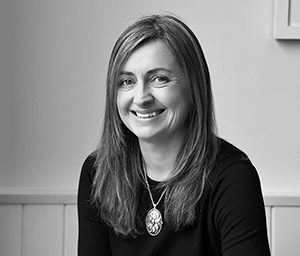Bryony Richardson, founder and primary designed on creating clothes for women who do now want to disappear into the background
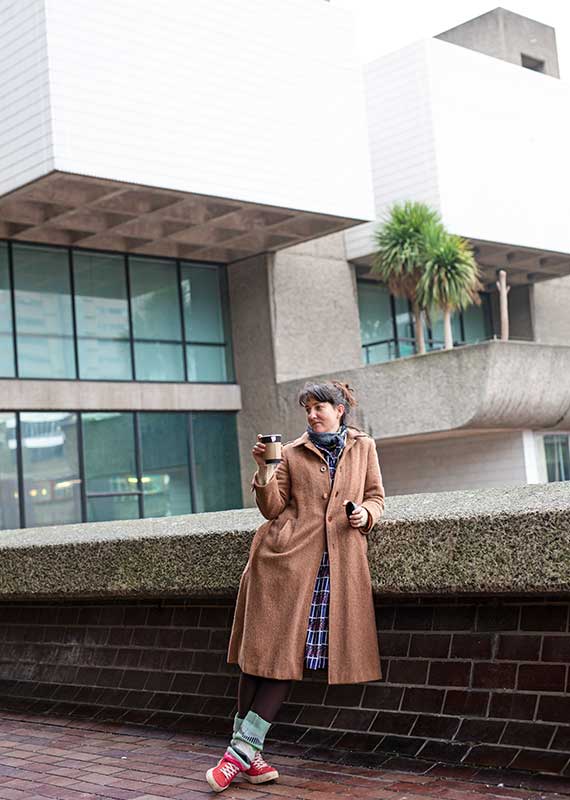 Bryony, who is dyslexic, struggled to find her way in the world, but has found her niche with Palava, a clothing brand for women who do not want to blend in
Bryony, who is dyslexic, struggled to find her way in the world, but has found her niche with Palava, a clothing brand for women who do not want to blend inTell us a little about your background and how Palava came to be?
Being quite dyslexic and not in any way academic I struggled to find my place in it the world. I never thought I’d end up running a clothing company – even now I’m surprised. I was always fascinated by objects though; I come from a long line of hoarders so it’s no wonder really. It is probably this that led me to study 3D design at Manchester University. It was a very open, practical course, covering ceramics, glass, product design and woodwork, and although I loved it, I had no idea what I was going to do when I left.
After graduating I took a job working for Cath Kidston, filling in when people were off. I got to cycle all over London between the different shops and quickly picked up a feel for their prints and how they functioned. I asked many times if they would let me into their design studio, but they would always say no!
Needing to put my energy into something creative, I moved home to Teeside to take over my parents’ dormant children’s clothing business, Poppy. Imagine little dresses with bright colours, add a cat or two, a nursery rhyme, plus a few frills and a matching hat and you’re probably there. It was crazy but people loved it, and Poppy was very successful. Between 1980 and 2000 the whole industry saw such a change: clothing manufacturing in the UK pretty much disappeared. The word sustainability didn’t exist at that time, and people would laugh at me for wanting to manufacture in the UK, but both things were very important to me; I wanted to make a difference. It was a steep learning curve and one I didn’t think I would succeed at, but from Poppy, Palava was born, and I’m so proud to still be here.
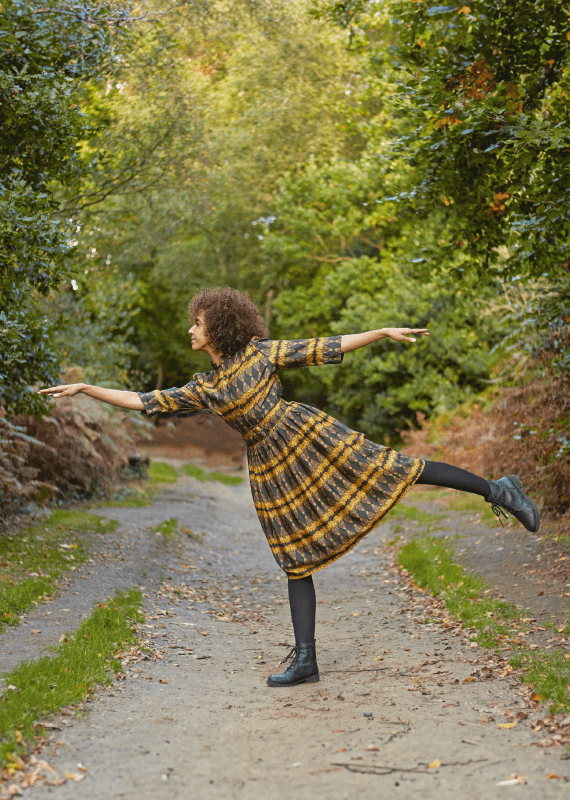
What’s your brand philosophy?
We make clothing not fashion. We do our own thing. We do not follow fads or trends. I’ve always made clothes in a way that I feel I can hold my head up high and say I’m proud of. That for me is very important.
What is your USP?
We don’t blend in. It’s easy to feel invisible in this world especially as women who have kids and then hit menopause; we want women to feel proud of who they are and to want to stand out in the crowd. So many customers come in and say how many people stop them in the streets and compliment their clothes. That makes us happy.
We believe women have the right to pockets! Palava is made for every day and every evening, we make our clothes as practical and hardwearing as they can be. This gives longevity and wearability, ensuring people get the most out of their clothing. We are passionate about supporting a struggling UK clothing industry by creating jobs and helping companies survive – from fabric merchants to button suppliers, the UK textiles/ clothing industry is a delicate ecosystem. We have always made everything here in the UK and we will always support manufacturers based here. We value the people who make our clothes. We know every detail about our clothing; very few people understand what goes into making a single item of clothing. We need to build an appreciation of our makers.
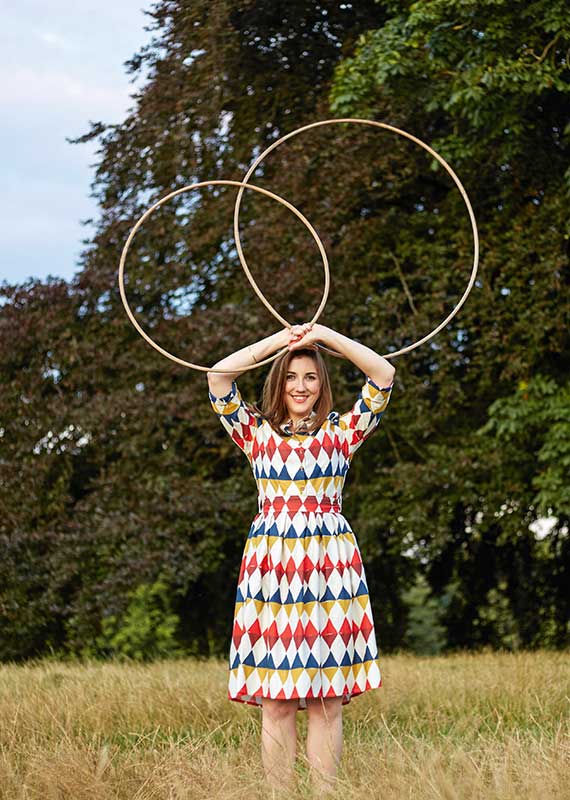
Describe your style
Ha! My style is anything goes really, I love mixing and matching and not being afraid to put different colours together. In that way, I’m probably an oddity for someone who’s ended up in the clothing industry. I think I’m more of a tomboy than a glitzy girl: I’m often a little on the scruffy side it has to be said. I always feel clothes and shoes are for wearing and enjoying, getting the most out of, so I’m never that careful, always finding accidental bits of paint.
Tell us about what we can expect from Palava’s autumn collection this year?
This autumn marks 15 years of Palava and we will be celebrating 15 years of unique prints. So, it’s a time capsule of prints from collections gone by. Each one picked for its part in the Palava history. It gives us time to reflect and also bring back some of the prints people have really missed. This sits alongside our ongoing heritage collection of British wool and British waxed cotton raincoats. We don’t make anything in large quantities, so people have to get in there fast. How do you want people wearing your pieces to feel? Palava is about feeling comfortable in your own skin. We design pockets into everything so that comfort and practicality are always considered. I want women to feel like they stand out, but for all the right reasons. Confidence is so important to us all, especially as we get older. I don’t want women to feel like they have to disappear into the background.
Is there anyone you’d really love to see wearing one of your designs?
That’s a good question, we’ve had our fair share of amazing customers, but I guess the big shot would be Mary Portas, who is a great advocate for UK manufacturing, and I admire her hugely. We also make a handful of men’s shirts, and I would love to see Patrick Grant in one of our designs. His new book, LESS, is well worth the read and explains why we need to buy more products that are made here in the UK. I would say these two are my industry heroes.
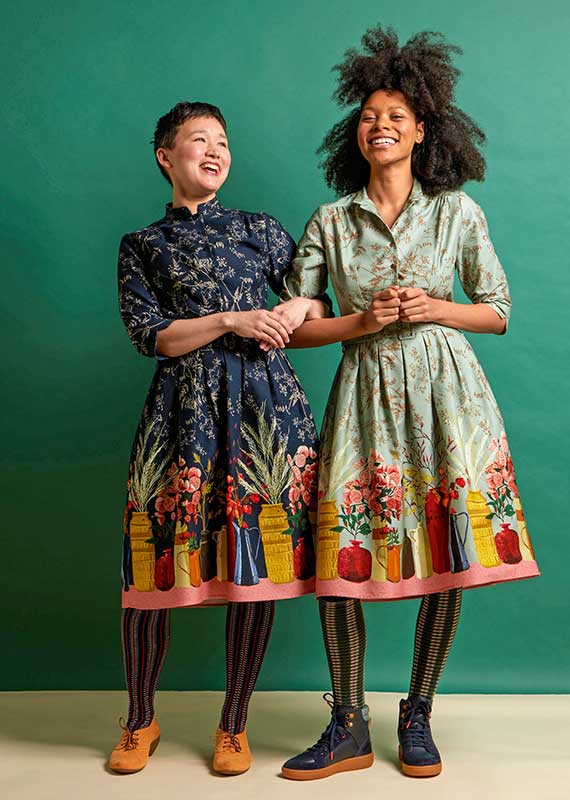
Tell us about the role of sustainability in your business
It’s something that has always been at the heart of Palava, even 15 years ago. It’s so important that when you put something out into the world, you consider every part of its journey. That’s why we care so much about traceability and being able to know each step. We also consider what happens when a product leaves our hands, offering a mending service. And next month we are launching our very own re-sale site. All our fabrics are natural, so we also think about their afterlife: the ability to be recycled or worse case, what will happen if they end up in the ground. We need to consider the whole cycle.
What’s new/next for Palava?
Well, there is so much on the horizon, we can’t share all of it just yet, but we have some big ideas. The future is different for clothing, I am sure, and we are looking at how we make it a super positive thing instead of the negative view we have at the moment. We have some projects in the pipeline that will be made using materials that already exist. It’s exciting but a lot to do for a small team!
